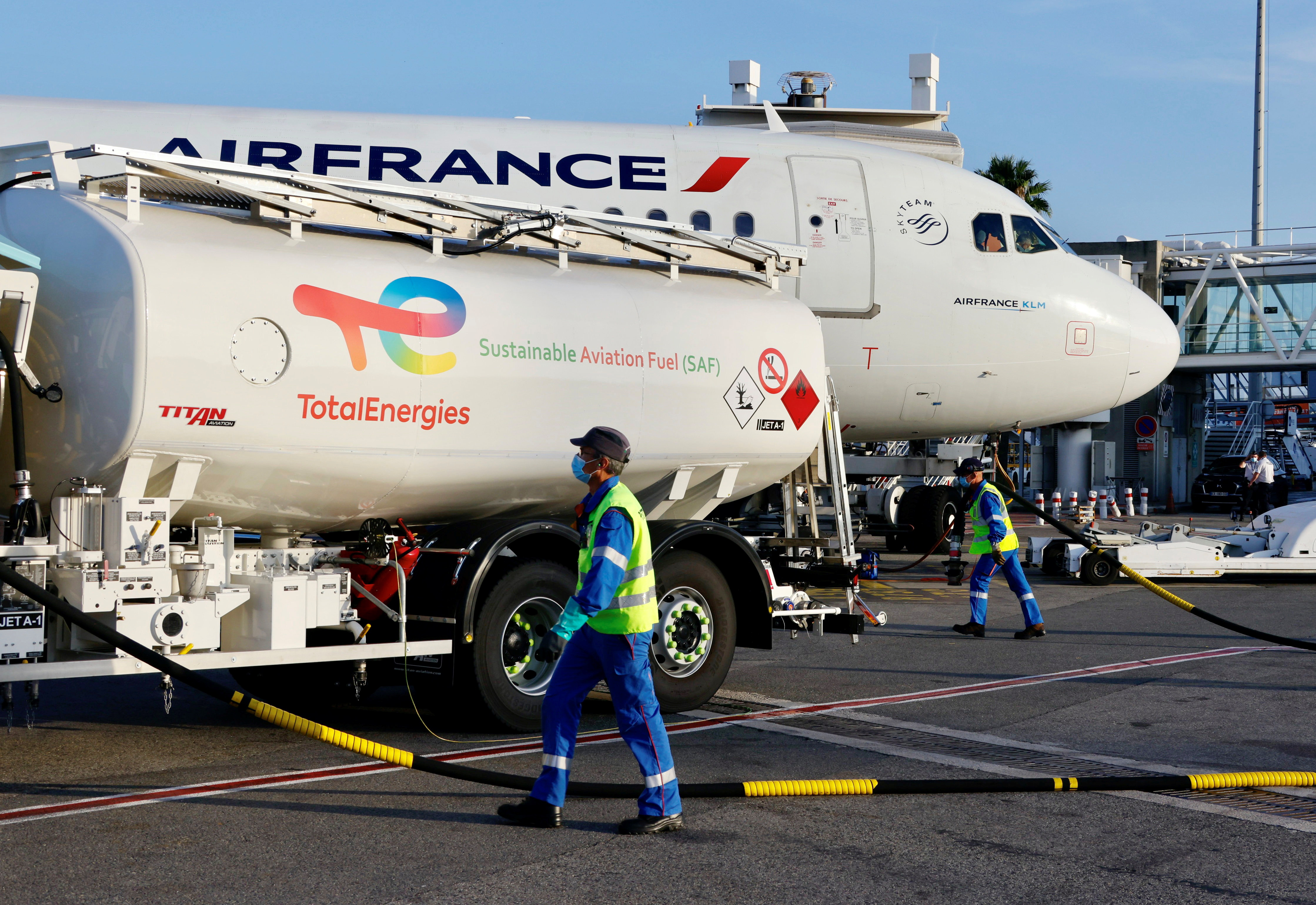EU agrees binding green fuel targets for aviation

An Air France aircraft, operated with sustainable aviation fuel (SAF) produced by TotalEnergies, is refueled before its first flight from Nice to Paris at Nice airport, France, October 1, 2021. REUTERS/Eric Gaillard Purchase Licensing Rights
BRUSSELS, April 26 (Reuters) - The European Union has agreed a deal to set binding targets for airlines in Europe to increase their use of sustainable aviation fuels, in an attempt to kickstart a market for green fuels and start curbing the aviation sector's carbon footprint.
After late-night talks, negotiators from the European Parliament and EU member states struck the deal just before midnight on Tuesday.
The proposal aims to increase both demand for and supply of sustainable aviation fuels (SAF), which have net-zero CO2 emissions or lower CO2 emissions than fossil fuel kerosene. For now, these fuels are produced in tiny quantities and are far more expensive than conventional aviation fuels.
Fuel suppliers must ensure that 2% of fuel made available at EU airports is SAF in 2025, rising to 6% in 2030, 20% in 2035 and gradually to 70% in 2050.
From 2030, 1.2% of fuels must also be synthetic fuels, rising to 35% in 2050. Synthetic fuels are made using captured CO2 emissions, which proponents say balances out the CO2 released when the fuel is combusted in an engine.
Aviation is seen as one of the hardest sectors to decarbonise, with zero-emission aircraft not expected for more than a decade. Sustainable fuel is seen as a route to start gradually reducing air travel's carbon footprint in the near-term.
AIRLINES REACT
Some European airlines, like Air France-KLM (AIRF.PA), said they had already made more ambitious targets for SAF use than set out in the EU rules.
Others warned the deal could distort competition, as the SAF targets would apply to airlines flying from European hubs but not to long-haul carriers flying from elsewhere.
"The price increase for travel via Istanbul or Dubai is marginal, since no SAF costs are incurred when transferring at these hubs," a spokesperson for Lufthansa (LHAG.DE) said.
Airlines are set to receive about 2 billion euros ($2.2 billion) in funding from the EU carbon market to help them switch to SAF.
Biofuels can count towards the main SAF targets if they comply with EU sustainability criteria. Low-carbon hydrogen produced from nuclear power is also eligible - a win for countries like France with large shares of atomic power.
Campaign group Transport & Environment criticised the inclusion of some biofuels, including animal fats that it said could cause shortages in other industries, such as pet food production.
Greenpeace EU transport campaigner Thomas Gelin said airlines used sustainable fuels "as a smokescreen to dodge the fact that the only truly sustainable aviation is less aviation".
EU countries and the EU Parliament must each approve the deal before it can pass into law. That process is usually a formality that sees pre-agreed deals go through with no changes.
($1 = 0.9059 euros)
Sign up here.
Reporting by Sudip Kar-Gupta Editing by Chris Reese
Our Standards: The Thomson Reuters Trust Principles.
